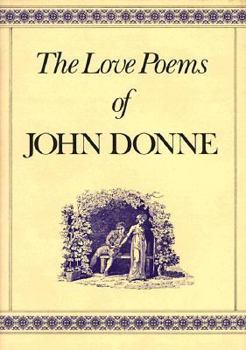The Love Poems of John Donne
Select Format
Select Condition 
Book Overview
John Donne's standing as one of the greatest poets in the English language is now thoroughly established, and critics such as T. S. Eliot and F. R. Leavis have found in Donne's poetry qualities profoundly responsive to the modern age. While Donne is famous for his religious poetry, his love poems are among the most beautiful ever written, and this collection brings them together for the first time. Donne was a man who knew all the many faces of love-- physical passion, jealousy, rapture, grief and parting-- and possessed the genius to distill his experiences into poetry. The potency of his writing has lost none of its effect; Donne's love poetry taps the reservoir of feelings and emotions common to all human beings. Before Donne was ordained as a priest in 1615, he wrote sonnets (such as "The Dream" and "The Ecstasy"), elegies (such as "To His Mistress Going to Bed" and "Love's Progress"), and wedding songs ("St. Valentine's Day" and "Epithalamion"), all of which glitter with an eroticism that truly marries body and soul. Charles Fowkes, author of a critically acclaimed biography of Rembrandt and several anthologies of short stories, has gathered those poems in which Donne is most passionate and most lyrical. The result is this lovely volume- the perfect gift for every beloved, a book of poems to press flowers in and to keep by the heart.
Format:Hardcover
Language:English
ISBN:0312499442
ISBN13:9780312499440
Release Date:October 1982
Publisher:St. Martin's Press
Length:100 Pages
Weight:0.52 lbs.
Dimensions:0.8" x 5.3" x 7.3"












